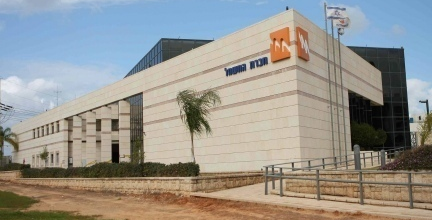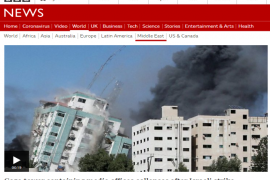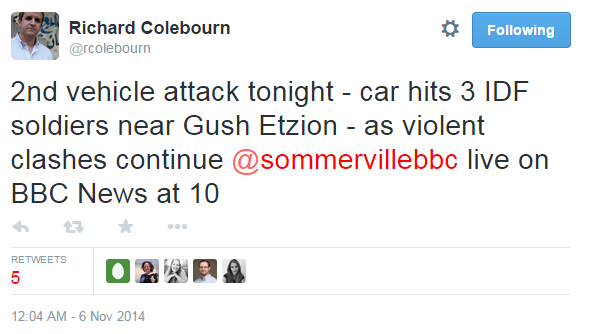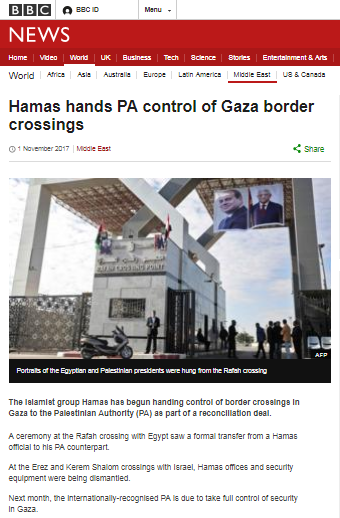In the news bulletin at the beginning of the July 22nd edition of the BBC Radio 4 programme ‘World at One’ listeners heard the following report (from 04:17 here) presented by newsreader Neil Sleat. [emphasis in italics in the original]
Sleat: “The Israeli security forces have begun pulling down at least ten buildings in a Palestinian village close to the separation barrier in the occupied West Bank. The United Nations and the European Union have called for the demolitions near East Jerusalem to stop, claiming it’s undermining the chances of peace and a two-state solution to the conflict. From Jerusalem, here’s our Middle East correspondent Yolande Knell.”
Knell: “Bulldozers and hundreds of Israeli police and soldiers moved into Sur Baher early this morning. A Palestinian official said some thirty people were forced to leave their homes and the demolitions began. Israel’s Supreme Court had ruled that these properties, some of which were still under construction, were too close to Israel’s separation barrier and for security reasons the owners should have sought permission from Israel’s military commander. Palestinians said that as their buildings were just inside the occupied West Bank, they had taken their permits from the Palestinian Authority. They argue that the clearance of their homes could set a precedent for further demolitions along the length of the barrier.”
As we see the unsupported UN/EU statement was uncritically amplified with listeners denied any information which would enable them to judge its veracity and relevance for themselves. Likewise, Yolande Knell uncritically amplified PLO messaging concerning “a precedent”.
“The PLO Negotiation Affairs Department slammed the court’s ruling last week, stating that it “aims to set a precedent to enable the Israeli occupying forces to demolish numerous Palestinian buildings located in close proximity to Israel’s Annexation Wall.””
Knell’s portrayal of the Supreme Court ruling did not clarify that it came after years of court cases.
“The court’s dismissal of the case brought an end to the residents’ seven-year legal battle against a military order that halted work on the 16 apartment buildings. Though the permits for the buildings were issued by the PA’s planning ministry nearly 10 years ago, Israel in 2012 ordered a halt to construction work in Wadi al-Hummus, citing its close proximity to the security barrier. […]
…the justices sided with the Defense Ministry, saying in their decision that major construction along the barrier would “limit [military] operational freedom near the barrier and increase tensions with the local population.
“Such construction may also shelter terrorists or illegal residents among the civilian population, and allow terrorist operatives to smuggle weapons or sneak inside Israeli territory,” justices Menny Mazuz, Uzi Fogelman and Yitzhak Amit wrote… “We therefore accept that there is a military-security need to restrict construction near the barrier.””
According to one Israeli news website reporting on that court ruling:
“In the year 2016 alone there were 170 security incidents in the area of Sur Baher, including the infiltration of terrorists who carried out attacks throughout the country.”
Neither did Knell’s portrayal adequately inform BBC audiences that:
“In its ruling, the Court said: “The original construction ban order and the orders extending it were publicized as required. The petitioners took the law into their own hands when they started and continued to build structures without receiving a special permit from the military commander.””
At no point were BBC audiences informed that the area in question lies outside Jerusalem’s municipal boundary and that misleading omission was repeated the next day – July 23rd – when listeners to the BBC World Service radio programme ‘Newshour’ heard presenter Tim Franks introduce an item (from 40:17 here) as follows:
Franks: “House demolitions in and around Jerusalem – particularly occupied East Jerusalem – are not that unusual. But Monday’s destruction by Israeli forces of at least ten Palestinian buildings has drawn particular attention and criticism. The UN and the EU had called for the demolitions not to go ahead, saying they’d undermine the prospects of peace and a two-state solution to the Israeli-Palestinian conflict. From Jerusalem, Yolande Knell reports.”
As we see, banal UN/EU messaging was again uncritically amplified.
Knell: [sound of shouting] “Cries of protest as Palestinian families are moved out of their homes. In the darkness, hundreds of Israeli soldiers and police had entered Sur Baher. Residents had feared this moment since the deadline for them to demolish their own properties expired last week. Soon, the bulldozers got to work, demolishing buildings that Israel’s Supreme Court says violated a ban on construction too near Israel’s separation barrier. Owners such as Ismain Obediyeh [phonetic] said they’d built properties just inside the West Bank and took permission from the local Palestinian council.”
Voiceover: “I have a permit to build this house from Bethlehem, from the Palestinian Authority.”
Knell: “Sitting near the rubble of his home, Ismain – a father of six – said his family was left with nowhere to live.”
Voiceover: “This was the most difficult day I have known in my life. I’m so sad and tired. Today my house was demolished. My dreams were destroyed. They shattered the dreams of my entire family. It’s really difficult.”
It then became apparent that Knell does in fact know that the Wadi Hummus area is not part of the Jerusalem municipality but she made no effort to inform listeners that it lies on the Jerusalem side of the anti-terrorist fence because the residents of Sur Baher petitioned for that to be the case in 2004.
Knell: “The village of Sur Baher straddles the boundary line between occupied East Jerusalem and the West Bank. A double fence – part of Israel’s separation barrier – runs near the edge. Emmanuel Nahshon – a spokesman for the Israeli foreign ministry – said construction isn’t allowed here for security reasons.”
Nahshon: “The Palestinians know fully well that they are not allowed to build near the security fence and Israel is totally within its rights when it destroys those buildings. And the destruction order has been approved by our Supreme Court.”
Knell closed her report with more unquestioning promotion of PLO talking points.
Knell: “This year there’s been an increase in house demolitions by Israeli authorities in East Jerusalem. Palestinians say it’s difficult for them to get building permits. And now these homes have been cleared, they worry it could set a precedent for many more that lie along the route of Israel’s West Bank barrier.”
In neither of these reports were BBC audiences told why the anti-terrorist fence had to be constructed or how it has dramatically reduced the scale of terror attacks against Israeli citizens. Had they been given that information listeners could have decided for themselves whether the demolition of mostly partly built buildings or the politically motivated murder of Israeli civilians contributes more to “undermining the chances of peace and a two-state solution to the conflict”.
As well as the omissions and largely one-sided content in these two reports, we see the exclusive use of partisan language such as “occupied West Bank” and “occupied East Jerusalem” which severely erodes the BBC’s claim to ‘impartiality’.
Related Articles:
BBC News report omits significant information
In Wadi Hummus demolitions story, journalistic precision is a casualty (CAMERA)




